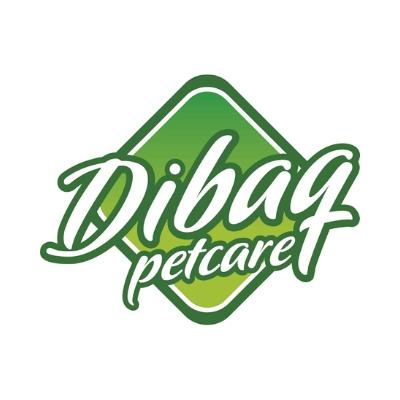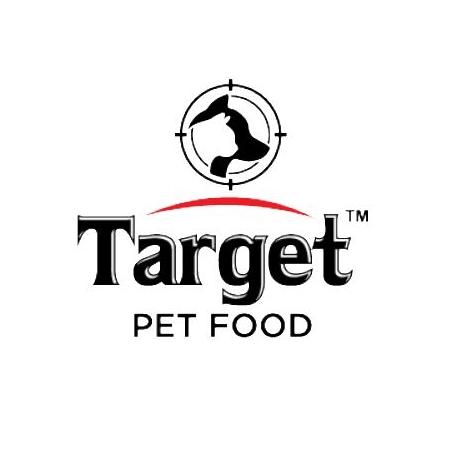Dog Abortion (Lost Pregnancy)
Introduction
Abortion is defined as the death and premature expulsion of one or more embryos or fetuses before they are viable. In real-world terms, an abortion is when one or more puppies in a litter are born before they are ready or able to live in the outside world. A normal pregnancy for a dog lasts about 63 days after the bitch ovulates. This is not necessarily 63 days after she was bred; most bitches ovulate a day or two before they conceive. Abortions are fairly uncommon in domestic dogs, but they do occur from time to time. When they do happen, they generally occur during the last three weeks of pregnancy. If an abortion occurs early in a pregnancy, the owner often will not detect it. When a bitch has been confirmed to be pregnant, either by skillful palpation, ultrasound or radiographs (X-rays), and later does not deliver puppies, one of two things has happened: either she miscarried and aborted her puppies, or the puppies were reabsorbed.
Causes & Prevention
There are a number of different things that can cause a pregnant bitch to abort one or more of her puppies. These include: excessive inbreeding, poor nutrition, endocrine disorders (hypothyroidism; hyperadrenocorticism [Cushing's Disease]), ingestion of toxic substances, certain pharmaceutical agents (including chloramphenicol), high doses of glucocorticoids (steroids), systemic illness accompanied by a high fever (distemper, leptospirosis), abnormal ovarian function, cystic endometrial hyperplasia, trauma (jumping from heights, blows to the abdomen), stress and bacterial, viral and fungal infections. One of the most common causes of canine abortion and still-births is Brucellosis, an infection caused by the Brucella canis bacteria. Other infectious agents that can cause abortions include Listeria monocytogenes, Escherichia coli, Campylobacter, Salmonella, Streptococcus, canine herpesvirus, Neospora caninum, Mycoplasma, canine distemper virus, parvovirus and Toxoplasma gondii. Abortion can also be caused by immune-mediated hemolytic anemia and by a number of neoplastic (cancerous) conditions.
Bitches who abort on successive pregnancies should be assessed for uterine infection and for progesterone deficiency. A progesterone deficiency, called "hypoluteoidism," usually is caused by failure of the ovaries to secrete enough progesterone to support attachment of the embryo/placenta to the uterine wall. If the bitch's owner finds fetal or placental tissue after an abortion, she should take it to her veterinarian, so that it can be submitted to a pathology laboratory for evaluation and determination of the cause of the abortion. In most cases, canine abortions are caused by some infectious agent.
Preventing Canine Abortion
Sound management practices, including providing superior nutrition, regular vaccination, internal and external parasite control and pristine environmental hygiene, are critical to a successful pregnancy. Once a bitch begins aborting her fetuses, it is very difficult if not impossible to reverse the process and save the litter. If her serum progesterone levels are low and caught early enough, progesterone supplements can be administered in an attempt to sustain the pregnancy to term. This probably is a good idea for bitches that have a history of early-term abortions associated with low plasma progesterone levels. However, progesterone levels must be rigorously monitored. Bitches should have limited contact with other dogs (other than those in their immediate family) during their pregnancy, and probably should be kept away from dog parks, dog shows and other areas frequented by dogs whose vaccination and health status is not known.
Special Notes
Many intact bitches go through what is called a pseudo-pregnancy. This is also known as a false pregnancy. It can be difficult even for experienced breeders to differentiate between a false pregnancy and a true pregnancy, especially during the first month of gestation. Affected bitches develop mammary gland enlargement and can actually produce milk. They may dig and nest, in much the same way as bitches that are truly pregnant will do. When an owner has planned a litter and conscientiously bred and cared for her bitch, it is very disappointing to find out that her apparent pregnancy is actually a false one. Sometimes, nature just fools us.
Symptoms & Signs
The symptoms of abortion can be difficult for even the most attentive of owners to detect. Usually, there are no obvious signs that an abortion has happened. Many bitches will eat their aborted fetuses or fetal tissue, especially if they abort early in their pregnancy. Abortions are not common in our domestic dogs. The more common reproductive abnormality is reabsorption of puppies. When this occurs, the bitch's body basically absorbs the fetal tissues, leaving no sign that the puppies ever were there. This can happen even after a pregnancy is confirmed by ultrasound and/or radiograph (X-ray). Basically, the puppies just disappear and no fetuses or fetal tissues are ever expelled.
Effects of Abortion
Abortions are not common in domestic dogs. When they happen, they usually occur during the last three weeks of the bitch's pregnancy. Fastidious bitches may eat the fetal tissues that they expel, especially if they abort fairly early in their pregnancy. This makes abortion extremely difficult for owners to detect. Bitches often become depressed and lethargic after aborting a litter, which certainly is understandable. They need extra attention and love from their owners after this traumatic experience.
Failure to whelp on time
Vaginal discharge – dark greenish to black
Vaginal discharge – thick, containing pus (purulent)
Strong, foul odor coming from the vulva
Appreciable weight loss/loss of abdominal size
Abdominal pain
Restlessness
Depression
Dehydration
Listlessness
Whelping of lifeless puppies
Passage of dark and/or bloody placental tissue
Vomiting
Diarrhea
Behavioral changes
Dogs at Increased Risk
Malnourished females have a greatly increased risk of aborting their puppies, as do elderly bitches and those that have systemic disease. Pregnant females with internal and/or external parasite infestations also have an increased chance of aborting their litters.
Special Notes
Abortions are relatively rare in domestic dogs. When they do happen, they often go unnoticed by even the most attentive of owners. However, the bitch will still suffer the emotional and physical consequences of what she has gone through and will need lots of love and attention to bring her back to a good place.
Diagnosis & Tests
Initial Evaluation
Abortion is one of the most distressing medical conditions faced by breeders of domestic dogs. Often, there are no recognizable signs that an abortion has taken place, especially if the abortion happens early in the pregnancy. The bitch often will ingest (eat) aborted fetal tissues, leaving no trace of the failed litter. Most abortions actually occur during the last few weeks of pregnancy.
Diagnostic Procedures
When an owner suspects that her bitch has had an abortion, she will take her to the veterinarian for a reproductive evaluation. The veterinarian probably will draw a blood sample, to assess whether there are any infectious organisms in circulation, and also to check the bitch's blood progesterone level. Serum progesterone needs to be greater than 2 nanograms per milliliter to successfully maintain a normal pregnancy. Blood tests can also be run to analyze thyroid and adrenal hormone levels. The vet may also take a vaginal swab sample and submit it to a pathology laboratory for culture and sensitivity, to identify any infectious agents. If any fetal tissues have been recovered, they should be submitted to the pathology laboratory as well, for detailed assessment. Ultrasonography is commonly used during pregnancy to assess fetal heart rates. An ultrasound examination can reveal lifeless puppies even before the onset of an abortion. If the pregnancy is particularly tenuous, weekly ultrasounds can be conducted to monitor the progress and development of the puppies. Ultrasound normally is first done between 25 and 30 days of gestation, which is about midway through the pregnancy. Radiographs (X-rays) may be taken to identify fetal skeletons and structures after 45 days of gestation. Vaginoscopy is also available at some veterinary hospitals, to visualize and assess the health of the entire length of the vagina.
Special Notes
Abortions are not common in domestic dogs. However, when they do happen, there often is no evidence of the event. If an abortion occurs early in pregnancy, the bitch probably will ingest the fetal tissue as part of her regular hygiene and self-cleaning. When an abortion is caused by Brucellosis, the Brucella canis organisms will be expelled in massive numbers in the aborted tissues and can be extremely infectious to other animals, including people.
Treatment Options
Goals
There is really no way to "treat" abortion. When a bitch aborts her litter, it usually is sudden, spontaneous and irreversible. Unfortunately, the owner often won't even know that an abortion has happened, especially if it occurs early in the pregnancy, because the bitch probably will lick and eat the fetal tissues as part of her normal cleaning behavior, leaving no evidence of the tragic event.
Treatment Options
The normal gestation period for dogs is 63 days after ovulation. Most bitches conceive several days after they ovulate. This is a relatively short period of time, especially when one considers the number of puppies that can be conceived, develop and become viable during that small, basically two-month window. There is no way to "treat" abortion. The best we can do is try to prevent it from happening. Many breeders conduct periodic abdominal ultrasounds to confirm their bitch's pregnancy and monitor the viability of all of the babies. Blood samples can also be taken to assess the level of circulating progesterone. A bitch must have adequate levels of progesterone to sustain her pregnancy. If the mother's serum progesterone level is low, progesterone supplements can be given to help maintain the pregnancy to term. However, progesterone supplementation must be stopped for the birth process (parturition) to occur. There are some potentially adverse side effects from supplementing progesterone during pregnancy. For example, administering progesterone before fetal sexual differentiation has occurred can contribute to abnormal masculinization of female puppies.
Once an abortion has occurred, the bitch may require supportive care, including administration of intravenous fluids to reestablish normal hydration, and possibly antibiotics if she has a fever or if a bacterial infection is suspected. She also should be monitored for signs of mammary gland inflammation or infection (mastitis).
Prognosis
Once a bitch aborts one or more of her puppies, the prognosis is poor for saving the other puppies in the litter. Fortunately, unless the abortion was caused by Brucella canis or canine herpesvirus, subsequent successful pregnancies usually are still possible. If the bitch develops a uterine infection (pyometra), she will be predisposed to having recurrent uterine infections during subsequent heat cycles.
















































